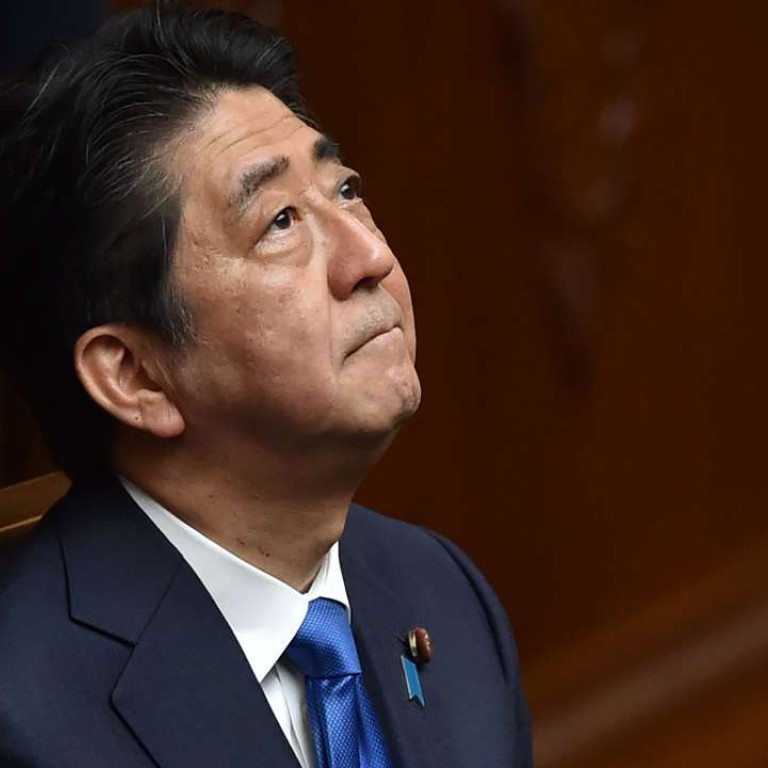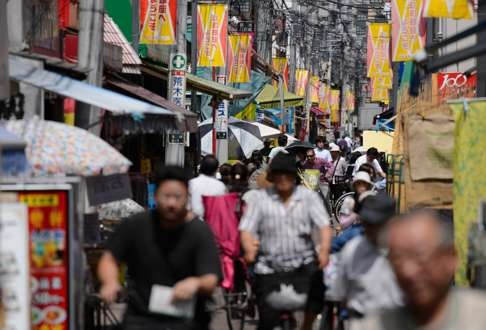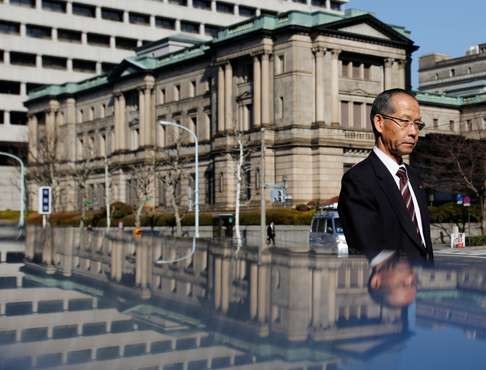
Abe’s tax hike delay is a sign of Japan’s deep political and economic malaise
Kevin Rafferty says the postponement of a long-planned increase in the consumption tax will only entrench the country’s indebtedness, and Abe’s mishandling is to blame
At one level, we can all sympathise; it is not easy being caught between the devil and the deep blue sea. But Abe’s indecision tells a tale of poor leadership and wretched economic and political prospects for Japan. Abe’s dilemma was: if he increased the tax, as promised under law, he would risk tipping the already fragile economy into recession; but if he postponed, he would entrench Japan’s already heavy indebtedness, with government spending far outrunning its income.
Japan’s Abenomics programme lies in tatters
The long-planned rise in the tax rate, from a modest 8 per cent to 10 per cent, is small. But there is an important issue of principle involved, as well as practical economics and politics that will prove a continuing headache for Abe and his successors. Abe is supposed to step down in 2018; he put off the increase until October 2019. Abe had already postponed the tax rise once and promised there would not be further backsliding. So much for political promises.

Japan’s greatest challenge is demographic not economic
Japan’s consumption tax is low by global standards. People in other rich countries commonly pay 15 to 25 per cent in consumption taxes or value-added taxes. Respected economists calculated that the tax should go to 22-25 per cent if Japan is to keep up with the increasing demands for health, welfare and pension payments of its rapidly ageing society.
In April, Angel Gurria, head of the Organisation for Economic Cooperation and Development, called for the tax hike to go ahead, and said Japan should raise it by 1 percentage point each year until it reaches 15 per cent.
Japan’s deep societal problems cannot be solved by slogans or ministerial fiat
Nobel laureates, including Joseph Stiglitz and Paul Krugman, visited Abe in March, and separately urged that he delay the rise, giving Abe intellectual cover. Koichi Hamada, emeritus professor at Yale, often known as “the godfather of Abenomics”, also supported postponement.
Abe, however, insisted the tax hike would go ahead unless there was a major disaster. Last month, he tried – unsuccessfully – to persuade other leaders of the G7 that the world was facing economic disaster. Finally, he decided to postpone the tax hike anyway, just before announcing the date of upper house elections in July. This was surely grubby domestic politics.
It can only get worse. Abe said he would wave his magic wand of Abenomics again, and all would be well. He claimed Japan’s primary budget, meaning without the heavy interest payments on debt, would be in balance by 2020, surely an exercise in wishful thinking or inventive arithmetic.
Japanese parties gear up for July upper house race

Japan’s big gamble on negative interest rates
Japan’s budget deficit has been slightly reduced, but is still running at 6 per cent of gross domestic product as the country’s total debts balloon to 250 per cent of GDP. After the election, Abe is expected to propose a 10 trillion yen (HK$700 billion) stimulus package to boost the economy – and increase Japan’s indebtedness.
Abe has made the right noises about restructuring the economy, but they have proved just noises
To be fair to Abe, he has made the right noises about restructuring the economy, bringing more women in and raising pay, but they have proved just noises. One hard truth is that Abe has had years to build a better economic road, but he put his energies into the chimera of making Japan a “normal nation” by throwing off the post-war constitution. Another hard truth is that Japan’s deep societal problems cannot be solved by slogans or ministerial fiat. With the additional burden of a declining population, Japan needs some special magic if it is to stave off insolvency – including, at least, raising the animal spirits of the population; encouraging a new hi-tech revolution; and an injection of the energy of substantial numbers of immigrants.
None of these items is on Japan’s political agenda. That’s the other hard truth – that there is too little critical discussion of the real issues and the difficult solutions. Like a frog luxuriating in warm water coming to the boil, Abe, Japan’s politicians, bureaucrats, academics, media and the general population are enjoying relatively pleasant economic times, not having the courage to face a grim future.
Kevin Rafferty, journalist and commentator, was a professor at Osaka University

